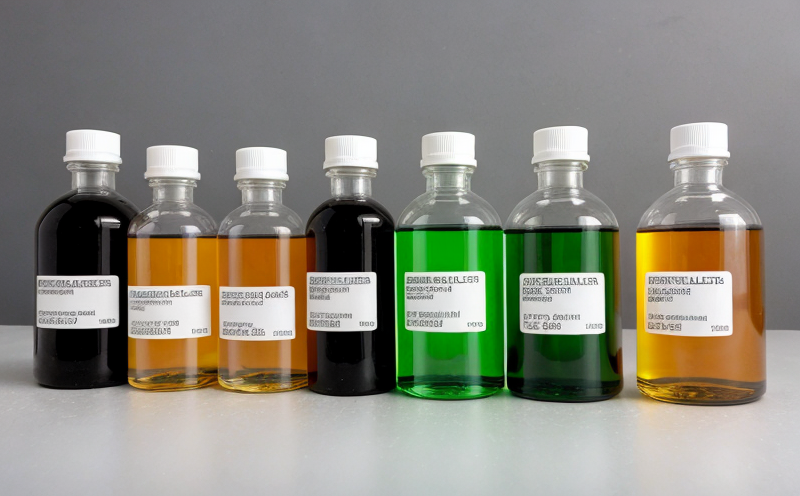TGA Residual Solvent and Additive Screening
The technique of thermogravimetric analysis (TGA) is widely utilized in the medical device industry to screen for residual solvents and additives. This method helps ensure that medical devices comply with stringent regulatory requirements, such as those set by FDA and other international bodies like the European Union's Medical Device Directive (MDD).
The primary objective of TGA is to determine the thermal stability of materials under controlled conditions. This includes identifying volatile components that might be present in medical devices, including residual solvents such as acetone, methanol, ethanol, and pyridine. By analyzing these components, manufacturers can ensure that their products are free from harmful substances that could affect patient safety.
The process involves heating a sample to a specified temperature range while continuously weighing it. Any volatile compounds will be driven off at specific temperatures, creating an accurate profile of the sample's thermal behavior. This method is not only useful for detecting residual solvents but also for identifying other additives and impurities that may have been introduced during manufacturing processes.
For instance, in the case of polyvinyl chloride (PVC), a common material used in medical devices like IV bags and tubing, TGA can help identify potential leachables such as plasticizers or stabilizers. These substances are crucial for maintaining the integrity of the device but must be controlled to ensure they do not migrate into contact with patients.
The precision of TGA makes it an essential tool in quality control and assurance processes. It allows laboratories to meet regulatory standards by providing detailed data on the thermal properties of medical devices, which is particularly important for ensuring long-term performance and safety.
Industry Applications
TGA Residual Solvent and Additive Screening finds application across various sectors within the medical device industry. Here are some key areas:
- Packaging Materials: Ensuring that packaging materials used in medical devices do not contain harmful chemicals or leachables.
- Surgical Instruments: Analyzing surgical instruments to ensure they are free from residual solvents and other potentially hazardous additives.
- Implants: Screening implants for any unintended contaminants that could affect patient health.
The use of TGA in these applications is crucial because it helps maintain the integrity and safety of medical devices throughout their lifecycle, from development to disposal. By identifying problematic components early on, manufacturers can take corrective actions to prevent potential risks to patients.
Why Choose This Test
Selecting TGA Residual Solvent and Additive Screening for your medical device testing is a strategic decision that offers several advantages:
- Compliance with Regulations: Ensures adherence to international standards like ISO 10993-18, which mandates the use of appropriate analytical methods for determining residual solvents in medical devices.
- Precision and Accuracy: Offers high-resolution data on thermal behavior, making it an invaluable tool for quality control processes.
- Rapid Turnaround: Allows for quick identification and resolution of issues related to residual solvents and additives, minimizing delays in product launches.
The reliability of TGA results is enhanced by the use of advanced instrumentation and experienced personnel who can interpret data accurately. This ensures that your medical devices meet not only regulatory requirements but also exceed expectations for patient safety and device performance.
Use Cases and Application Examples
| Use Case | Description |
|---|---|
| PVC Film Analysis: | Analyzed to determine the presence of plasticizers, stabilizers, or other additives that could affect long-term stability and safety. |
| Polystyrene Foam Testing: | Screened for residual solvents like methanol or acetone which might leach out over time. |
| EVA Copolymer Assessment: | Checked for potential leachables that could impact the adhesion properties of medical devices. |
- Polyurethane Elastomers: Evaluated to ensure they are free from solvents like 1,4-dioxane which might be harmful if present in significant quantities.
- Ethylene Vinyl Acetate (EVA): Inspected for residual solvents that could affect the bonding properties of films or coatings used in medical devices.
The data obtained from TGA testing provides critical insights into the quality and safety of materials used in medical devices, helping to prevent recalls and ensuring compliance with stringent regulatory requirements.





